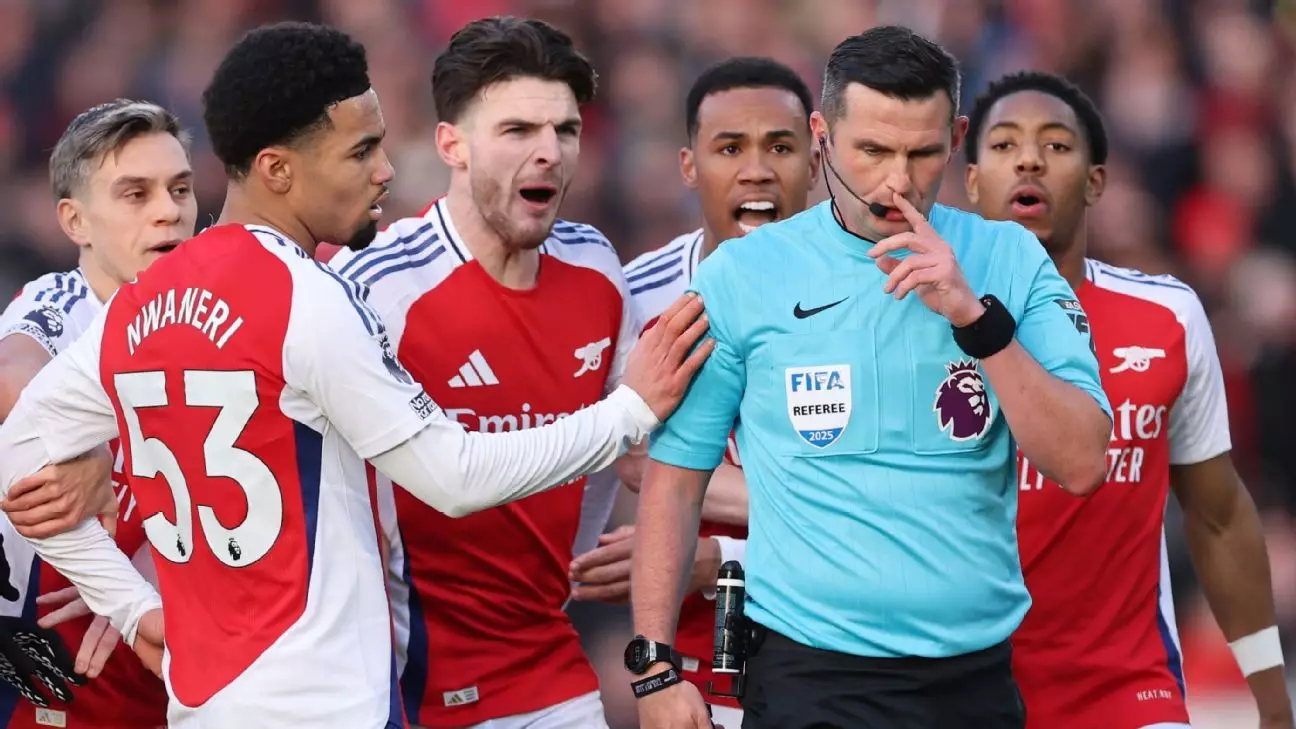The English football landscape has witnessed its fair share of on-field controversies, but Arsenal’s recent fine underscores a growing issue concerning player conduct towards officials. During a tightly contested match against Wolverhampton Wanderers on January 25, Myles Lewis-Skelly received a red card just before halftime, igniting frustration among his teammates and the coaching staff. Manager Mikel Arteta’s visible anger was mirrored by the actions of many Arsenal players, who surrounded referee Michael Oliver, leading to the English Football Association (FA) investigating the incident.
In the aftermath of the match, which Arsenal ultimately won 1-0 following a solitary goal from Riccardo Calafiori, the FA deemed the collective response of the Arsenal players as inappropriate. As a direct result, the club was fined £65,000 ($82,000). This action raises questions about accountability in football, especially when emotions run high and decisions appear contentious. The FA determined that the players’ actions breached acceptable standards of behaviour, prompting the regulatory commission to impose this fine.
Defensively, Arsenal appealed to reason in their correspondence with the regulatory commission. The club maintained that their players acted in a civil manner and were not guilty of aggressive conduct. Their written statement emphasized that there was no indication of gestures or accusations that could be classified as offensive or provocative. Despite this, the FA’s counter-statement highlighted the severity of the situation by pointing out that at one instance, nine Arsenal players were clustered around the referee. Such proximity, they argued, fundamentally undermined claims of polite conduct.
Implications of the Fine
What makes this fine particularly striking is the ongoing context of player discipline in the Premier League. Arsenal currently holds the dubious distinction of having accumulated the most red cards in the league this season, totaling four. This statistic hints at deeper issues within the team regarding discipline and managing emotions during high-pressure situations. The fact that Lewis-Skelly’s red card was rescinded shortly after adds a layer of complexity; it suggests that the referee’s decision may not have warranted the uproar that followed, prompting reflections on how players express dissent.
As Arsenal strives to remain competitive, lying seven points off league leaders Liverpool, the need for composure and professionalism becomes increasingly critical. This incident should serve as a pivotal learning moment for the team, highlighting that while passion for the game is essential, maintaining decorum is equally significant for long-term success. If Arsenal aims to contend for league titles, it must recalibrate its approach to player conduct on the field, ensuring that emotions do not overshadow discipline in the escalating Premier League arena. The path forward may require introspection, but it also offers the opportunity for growth and improved team dynamics.

